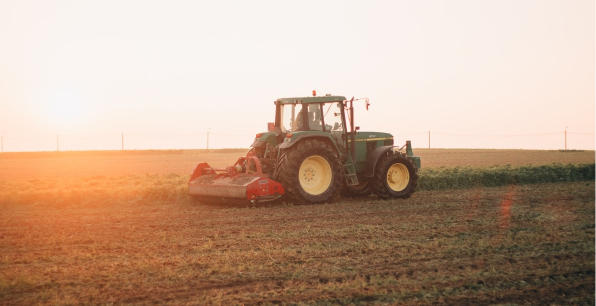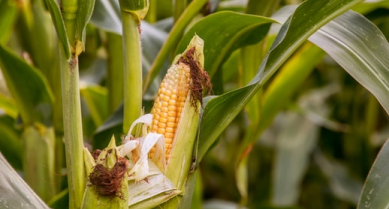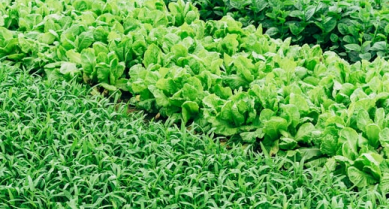MM Flowers works with Agrimetrics to drive insights from big data
“Roses are our most important crop; we sell millions every week,” explains Colum Donnelly, Technical Director of MM Flowers. “However, for Valentine’s Day, this volume doubles”. Planning starts years before, with every element of production – from breeding through to dispatch to the consumer – micromanaged to ensure consistent delivery of perfect blooms.
The business is data-driven, with trust and transparency key components of its success. The growth of the business reflects the desire for more consistent vase performance and thereby improve the customer experience and maintain and build brand loyalty.
Since the 1990s most roses have been grown under cover in equatorial countries such as Kenya, Colombia, Ethiopia and Ecuador, where rose producers are major employers, making a significant social and economic contribution to the economy. Good practice and sustainability are therefore vital for all in the value chain.
Donnelly explains that the company was established twelve years ago to fulfil a requirement from retailers for a differentiated, quality product. The retailer wanted to offer the consumer something unique.
He says: “At that time the supply into major retailers in the UK was over-consolidated, lacking in differentiation and involved too many intermediaries. There was a need for innovative products to penetrate this over-consolidated market.”
Some retailers challenged their fruit suppliers, including MMUK, to see if the procurement model it used so well for fruits and vegetables could be successfully applied to flowers. MMUK for example sourced top class grapes by following the summer around the world and minimising storage time, a process that requires sophisticated logistics. MMUK, on the back of its’ grape business, began sourcing flowers in South Africa applying its procurement principles to the Cape Fynbos flora, a product that had been overlooked by the other suppliers – and it was a great success.
Donnelly, who previously worked in growing and retail continues the story: “Our MD Phil Whelan was a retail buyer and saw an opportunity for a sustainable business that could use technology to better serve the big retailers. He established a new company, MM Flowers, and I came on board. We started supplying and adding new products one by one, always trying to supply something the market didn’t already have and waiting for the right moment to challenge the established players in the rose industry.”
During this time the industry was undergoing major change. Producers had traditionally sold their goods through marketing agents, but with volatile exchange rates, rising costs of labour and inputs, and the need for higher standards, transparency and innovation, smaller growers were packing up and the bigger growers becoming more important.
Retailers also needed to ensure security of supply and the remaining larger agri-businesses rightly saw this as an opportunity to have proper representation with the retailers. Growing roses and other crops on the equator requires long term investment into land, water, plants and infrastructure, and long-term arrangements would ensure a sustainable future.
“We could offer both parties the benefits of a compressed supply chain – with no middlemen – creating the opportunity for more dialogue to improve production,” says Donnelly. “The first customer was M&S, followed by other major retailers and a number of internet accounts like e-florist”. The logistics also changed, with direct transport to stores and direct delivery to homes.
“Our model is to control and add-value to as many parts of the chain as we can, from breeding and propagation through to production in the greenhouses, post-harvest and freight.
“We also collate customer insights and market analysis. A few years ago we saw how the whole data piece was leading to a significant change in our understanding of the consumer and offering the potential to improve every element of the chain, from breeding through to the consumer experience.
“As technical innovation was going to be the big driver for future success, we created Apex, our research and data business and recruited a team of specialists.
“At our facility in Alconbury we are evaluating how plant performance – and hence the consumer experience – is impacted at different points in its lifecycle. We have lots of data, but those data sets don’t talk to each other. We are looking for ways to link them so we can drive insight out of the data, and this is where we are enlisting the help of Agrimetrics.
Other case studies you might like

AI identifies crops from space with 90% accuracy
Agrimetrics launches CropLens AI, a proprietary algorithm that identifies crop types from space.

ClearSky: Cloud free satellite data for agriculture
ClearSky's artificial intelligence removes a major barrier to the efficacy of satellite

ClearSky: Cloud free satellite data for agriculture
ClearSky's artificial intelligence removes a major barrier to the efficacy of satellite

Agrimetrics partners with Airbus to reduce cost
Crop Analytics, a crop and field analytics package from Airbus, is now available at a new, lower price.







